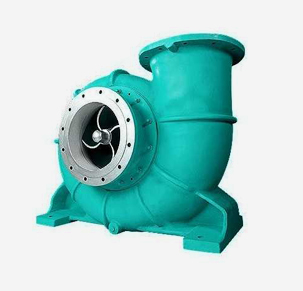Albanian
- Afrikaans
- Albanian
- Amharic
- Arabic
- Armenian
- Azerbaijani
- Basque
- Belarusian
- Bengali
- Bosnian
- Bulgarian
- Catalan
- Cebuano
- Corsican
- Croatian
- Czech
- Danish
- Dutch
- English
- Esperanto
- Estonian
- Finnish
- French
- Frisian
- Galician
- Georgian
- German
- Greek
- Gujarati
- Haitian Creole
- hausa
- hawaiian
- Hebrew
- Hindi
- Miao
- Hungarian
- Icelandic
- igbo
- Indonesian
- irish
- Italian
- Japanese
- Javanese
- Kannada
- kazakh
- Khmer
- Rwandese
- Korean
- Kurdish
- Kyrgyz
- Lao
- Latin
- Latvian
- Lithuanian
- Luxembourgish
- Macedonian
- Malgashi
- Malay
- Malayalam
- Maltese
- Maori
- Marathi
- Mongolian
- Myanmar
- Nepali
- Norwegian
- Norwegian
- Occitan
- Pashto
- Persian
- Polish
- Portuguese
- Punjabi
- Romanian
- Russian
- Samoan
- Scottish Gaelic
- Serbian
- Sesotho
- Shona
- Sindhi
- Sinhala
- Slovak
- Slovenian
- Somali
- Spanish
- Sundanese
- Swahili
- Swedish
- Tagalog
- Tajik
- Tamil
- Tatar
- Telugu
- Thai
- Turkish
- Turkmen
- Ukrainian
- Urdu
- Uighur
- Uzbek
- Vietnamese
- Welsh
- Bantu
- Yiddish
- Yoruba
- Zulu
Telephone: +86 13120555503
Email: frank@cypump.com
Dhj . 03, 2024 14:52 Back to list
horizontal centrifugal slurry pump
Horizontal Centrifugal Slurry Pumps An Overview
Horizontal centrifugal slurry pumps are vital equipment in various industries, particularly in mining, mineral processing, and chemical manufacturing. These pumps are specifically designed to handle abrasive and viscous materials, making them essential for transporting slurries, which are mixtures of solids and liquids. This article provides an in-depth look at horizontal centrifugal slurry pumps, including their design, working principle, applications, and benefits.
Design and Construction
The key feature of horizontal centrifugal slurry pumps is their robust design, built to accommodate harsh working conditions. Typically constructed from high-chrome alloy materials or rubber linings, these pumps are engineered to resist wear and corrosion caused by abrasive particles in the slurry. The pump casing is horizontal in orientation, which not only facilitates easy maintenance but also optimizes performance by minimizing cavitation issues.
The pump consists of several key components, including the impeller, volute casing, expeller, and shaft. The impeller, a rotating component, is responsible for imparting kinetic energy to the slurry. As it spins, the impeller creates suction, drawing the slurry into the pump. The volute casing then converts this kinetic energy into pressure for efficient transportation. The expeller plays a crucial role in preventing backflow, ensuring a steady flow of slurry.
Working Principle
Horizontal centrifugal slurry pumps operate on a straightforward principle. When the pump is activated, the motor drives the impeller, creating a centrifugal force that pushes the slurry from the pump intake through the casing and out through the discharge flange. The design of the impeller and casing is calibrated to maximize efficiency while managing the flow rate and pressure required for various applications.
One of the significant advantages of horizontal centrifugal pumps is their ability to handle slurries with a high solids concentration. The hydraulic principles governing these pumps enable them to manage the viscosity and density of the slurry, providing a reliable solution for challenging pumping tasks. Moreover, the horizontal design allows for easy alignment and minimal vibration, enhancing operational stability.
Applications
Horizontal centrifugal slurry pumps find extensive use in a wide range of industries
1. Mining and Mineral Processing These pumps are crucial for transporting ores and concentrates during mineral processing. They help in the transfer of slurry from one processing stage to another, such as in flotation and thickening processes.
horizontal centrifugal slurry pump

2. Chemical Manufacturing In the chemical industry, slurry pumps are used for transporting corrosive and abrasive mixtures, often encountered in the production of fertilizers, plastics, and other chemicals.
3. Construction Slurry pumps are employed in construction projects for transporting concrete mixes, cement, and other heavy material slurries, making them indispensable for construction sites.
4. Waste Management These pumps are also used in wastewater treatment plants to manage sludge and slurry, ensuring efficient waste disposal and treatment processes.
Benefits
The use of horizontal centrifugal slurry pumps comes with numerous benefits
- Durability Their robust construction ensures a long operational life, even under the most demanding conditions, resulting in lower maintenance costs.
- High Efficiency Designed to handle high volume and high pressure, these pumps are efficient at moving slurries quickly, which can lead to increased productivity.
- Versatility They can handle a variety of slurries with varying concentrations and viscosities, making them suitable for multiple applications across different industries.
- Ease of Maintenance The horizontal design allows for straightforward serviceability, reducing downtime and maintenance costs.
In conclusion, horizontal centrifugal slurry pumps are indispensable tools in various industrial applications, particularly those involving the handling of abrasive, corrosive, and viscous materials. Their robust design, efficient operation, and versatility make them a preferred choice for many industries, ensuring the effective and reliable transportation of slurries in challenging environments. As technology evolves, these pumps continue to adapt, providing enhanced features and improved performance, solidifying their role in the modern industrial landscape.
-
Heavy-Duty Mining Sludge Pumps - Wear-Resistant Slurry Handling
NewsAug.02,2025
-
Horizontal Split Case Pump with GPT-4 Turbo | High Efficiency
NewsAug.01,2025
-
ISG Series Pipeline Pump - Chi Yuan Pumps | High Efficiency, Durable Design
NewsAug.01,2025
-
Advanced Flue Gas Desulfurization Pump with GPT-4 Turbo | Durable & Efficient
NewsJul.31,2025
-
ISG Series Vertical Pipeline Pump - Chi Yuan Pumps | Advanced Hydraulic Design&Durable Construction
NewsJul.31,2025
-
ISG Series Vertical Pipeline Pump - Chi Yuan Pumps | Energy Efficient & Low Noise
NewsJul.31,2025










